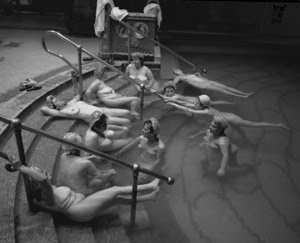Date: Tuesday, 16 March 2010
Time: 7:00 PM
Location: Rare Book Room
Contact Information: Patrick Stawski, 919-660-5823 or patrick.stawski(at)duke.edu, or Kirston Johnson, 919-681-7963 or kirston.johnson(at)duke.edu
 The Self-Made Man, the fifth film in the Rights! Camera! Action! series, Bob Stern decides to end his life after being diagnosed with a potentially terminal illness.
The Self-Made Man, the fifth film in the Rights! Camera! Action! series, Bob Stern decides to end his life after being diagnosed with a potentially terminal illness.
Susan Stern, the film’s director (and Bob’s daughter), will lead discussion following the film.
The Rights! Camera! Action! film series, which is sponsored by the Archive for Human Rights, the Archive of Documentary Arts, the Duke Human Rights Center, the Franklin Humanities Institute, and Screen/Society at Duke’s Arts of the Moving Image Program, features documentaries on human rights themes that were award winners at the annual Full Frame Documentary Film Festival. The films are archived at the RBMSCL, where they form part of a rich and expanding collection of human rights materials. Additional support for this screening is provided by the Kenan Institute for Ethics and the Divinity School Institute on Care at the End of Life.






